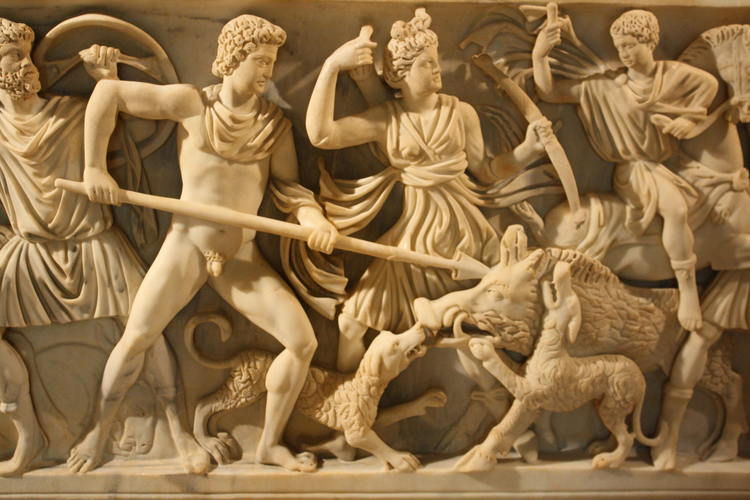Friends and Pirates
- Gatharion
- Oct 1, 2018
- 3 min read

It's funny when worlds collide. Pirate lore and history as well as their general fashion sense has always appealed to me. Captain Blood has always been one of my favorite films (seriously, check it out, if you're not familiar with it!) and I've had more than one job where I've gotten a reputation for dressing like a pirate. Heck, I've even been hired a couple of times to do that in one capacity or another. Of course, the reality of piracy is one drenched in all manner of depraved villainy. Raping, murdering, and pillaging are generally frowned upon in civilized society and they especially don't sit well with another society I was raised in, The Religious Society of Friends. In case you don't know, the Religious Society of Friends, most commonly known as "Quakers", are known for a few things (aside from that darn oatmeal guy and Richard Nixon), most notably the ideas of equality and pacifism. Quakers were big in the abolitionist movement, women's suffrage, peace protests, and so on. Quaker meeting houses are such notorious seats of liberal activism that some were being closely monitored by the Department of Defense before and during the invasion of Iraq. http://www.nbcnews.com/id/10454316/ns/nbc_nightly_news_with_brian_williams-nbc_news_investigates/t/pentagon-spying-americans/#.W7GaGRNKg3g
Yarrr! There be troublesome peaceniks off the port bow!
In any case, while I was doing some research on pirates (like you do), I was a little taken aback to start finding references to Quakers living in the West Indies, Jamaica and Barbados in particular, during the 17th century. Upon reflection, it made some sense, pacifists who didn't kowtow to church authorities or the English class structure were not very popular with EITHER Cromwell's lot or the regency. The West Indies provided economic opportunity and opportunity to practice their religion more freely. It's no doubt for similar reasons that many Jewish people were immigrating to the West Indies during that time as well. Some Quakers may also have come as slaves shipped over by England to work the plantations (*gasp* that's what happens to Captain Blood!!!). For whatever reason, come they did! According to http://www.quakersintheworld.org/quakers-in-action/268/Quakers-in-Jamaica-and-Barbados by 1700 there were 10,000 Quakers in Jamaica and Barbados had enough Quakers to support five meeting houses. Even the founder of the Society of Friends, George Fox, visited the West Indies.
It wasn't a good fit.
This was a time and place where being a buccaneer was a reasonably valid career choice (really more something you'd do as a temp gig, long term piracy tended to not work out). Piracy couldn't have been popular in a population of pious pacificts. And then there was the slave trade... the booming economy of the West Indies was built upon the harsh enslavement of native populations and slaves brought over from Africa. Undoubtedly, some Quakers left the faith in favor of profits while many extricated themselves to areas like Pennsylvania, in any case that explosion of a Quaker population in the West Indies was not sustained. In the span of 50 years, those 10,000 Quakers living in Jamaica had dwindled to 500. Did any Quakers during that time serve upon any pirate vessels? I haven't found any evidence that they did, and it's certainly difficult to reconcile the realities of pirate life and the tenets of Quakerism. However, we did have a bigot and war advocate as president of the United States who identified as being a Quaker, so who's to say?
The image at the top is from a book I read many times as a child called "Obadiah the Bold", one of several books about a young 19th century Quaker boy on Nantucket by Brinton Turkle. In this book young Obadiah day dreams about being a bold and respected pirate. A notion mocked by his brothers and rather sweetly supported by his father: "...if that is thy heart's desire, I hope thee will be a good one." Hmmm, a Quaker boy dreaming of being a pirate, go figure that this book spoke to me. The ending made it all the more poignant for me as Obadiah's father inspires him with tales of a non-piratical mariner who was bold and respected. Specifically, Obadiah's own grandfather who had successfully sailed around Cape Horn. Something my own grandfather did as well.
As a member of societies, both Religious and civil, I make for a terrible pirate. Or perhaps the best kind. Pass the rum.
On the off chance you're curious about my grandfather's exploits, or the world of mono-hull trans-ocean solo sailing, I recommend checking out the book he wrote: https://www.amazon.com/Moonshine-Logs-Francis-Stokes/dp/0924486678/ref=sr_1_sc_2?ie=UTF8&qid=1538368972&sr=8-2-spell&keywords=the+mooneshine+logs I think it's great! But he's my hero (even more so than Captain Blood!), so I might be biased.




Comments